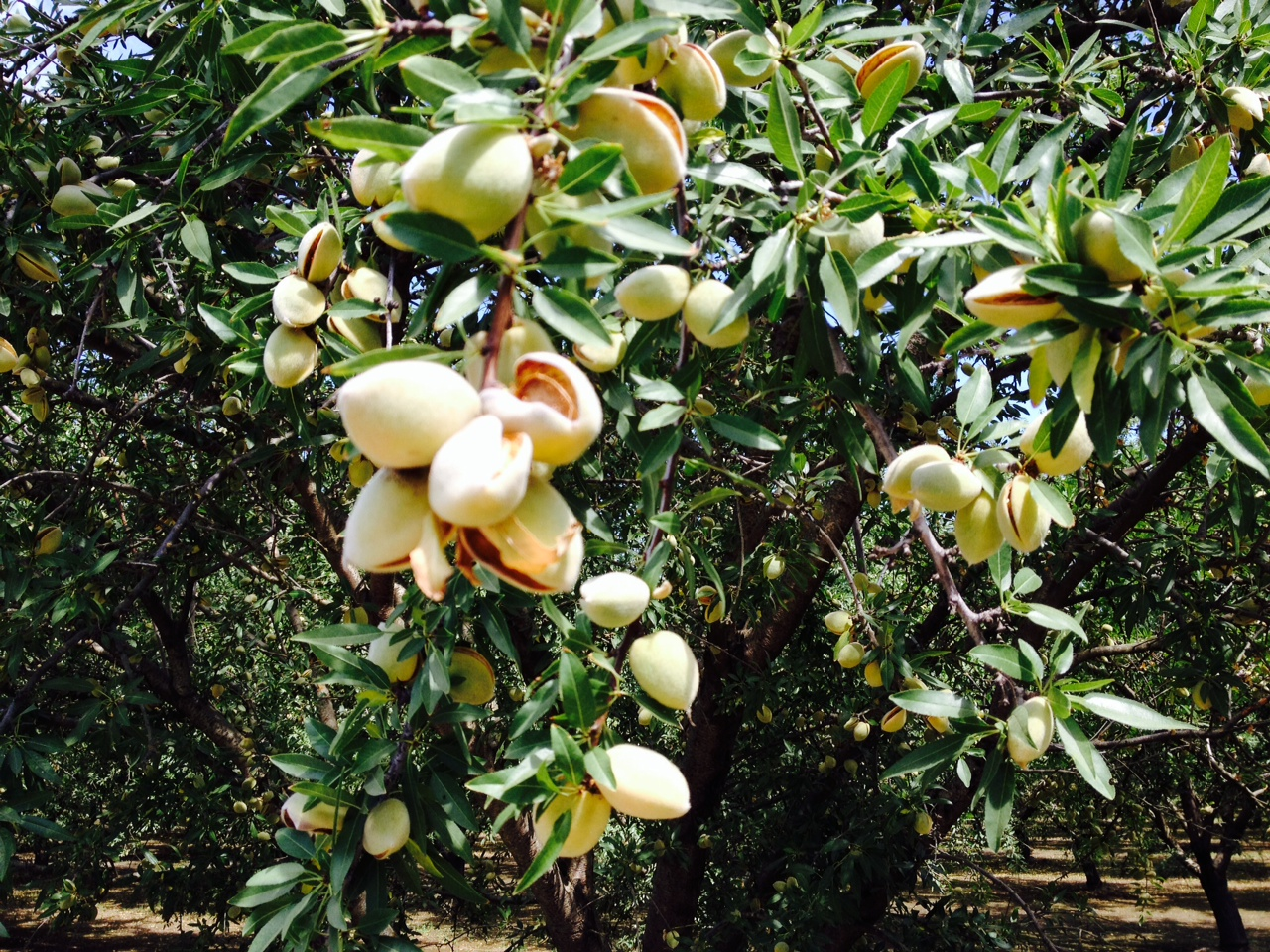The
images below were taken by Soil Secrets Dealer David Hilton near Modesto California. The site is Aaron's Cook Ranch, a significant
almond producer in the State of California.
In recent years the Almond production industry has been impacted by
increasing salinity of the soil, caused by drought and poor quality irrigation
pumped ground water. Summer of 2013 was
particularly destructive to the crop, with many farmers losing trees and even
removing orchards that are failing.
The
Cook Ranch treated 20 acres using 600 pounds of TerraPro per acre banded 4 to 6
inches wide on top of the drip irrigation line.
TerraPro is a soil conditioner containing as an active ingredient a
novel bio-organic matrix of supramolecular humic molecules. The trees were also foliar sprayed with an
AGGRAND organic nutrient product to provide essential nutrition while also
avoiding adding additional salinity via a standard fertilizer. I'll write another blog on the protocol used
with the AGGRAND nutrition program on this trial.
In addition to the treated fields showing no
salt burn on the foliage when compared to the control fields,
the
almonds on the treated field are continuing to mature
and
not prematurely crack open.
David
also tested the porosity (softness) of the soil by pushing a round 30 inch
foundation stake
into
the soil of the control and the treated fields.
In
the control fields he could not penetrate the soil with the stake, but in the
treated field the soil had grown mellow and soft where he was able to push the
stake in 18 inches.
Below
is he written report to Bob Geyer and John Miller, Soil Secrets Associates
provided by David Hilton on the progress of this trial.
"I
went last week to Aaron's cook ranch, I took a 30'' round foundation stake and
with one push it went 18 inches into the soil that was treated with Soil
Secrets TerraPro product, the almonds looked great, no salt damage on any leafs
and the new wood is doing I think awesome."
From:
David Hilton






Comments